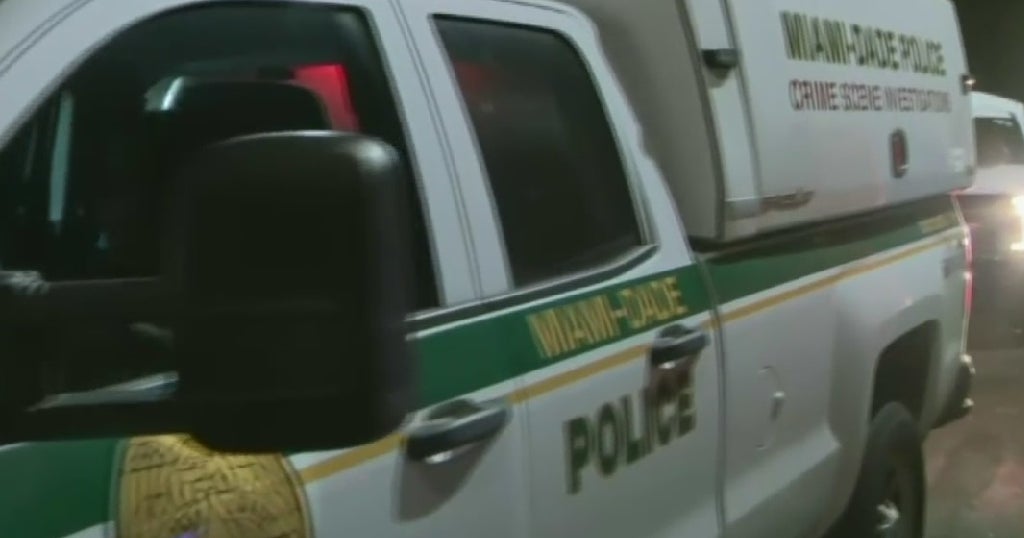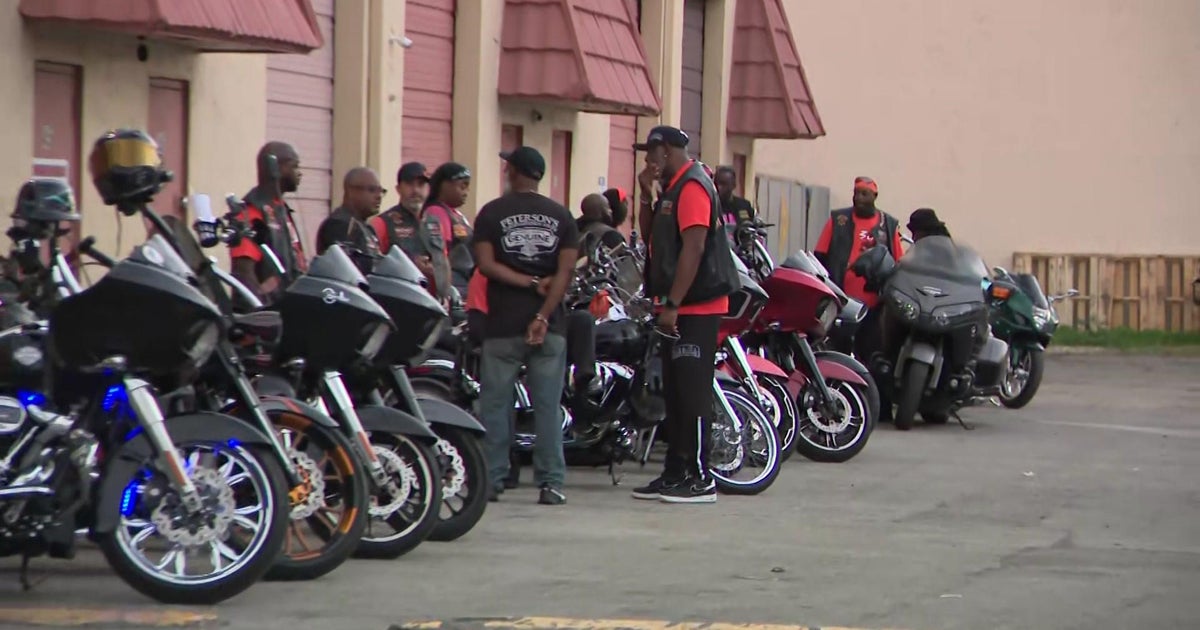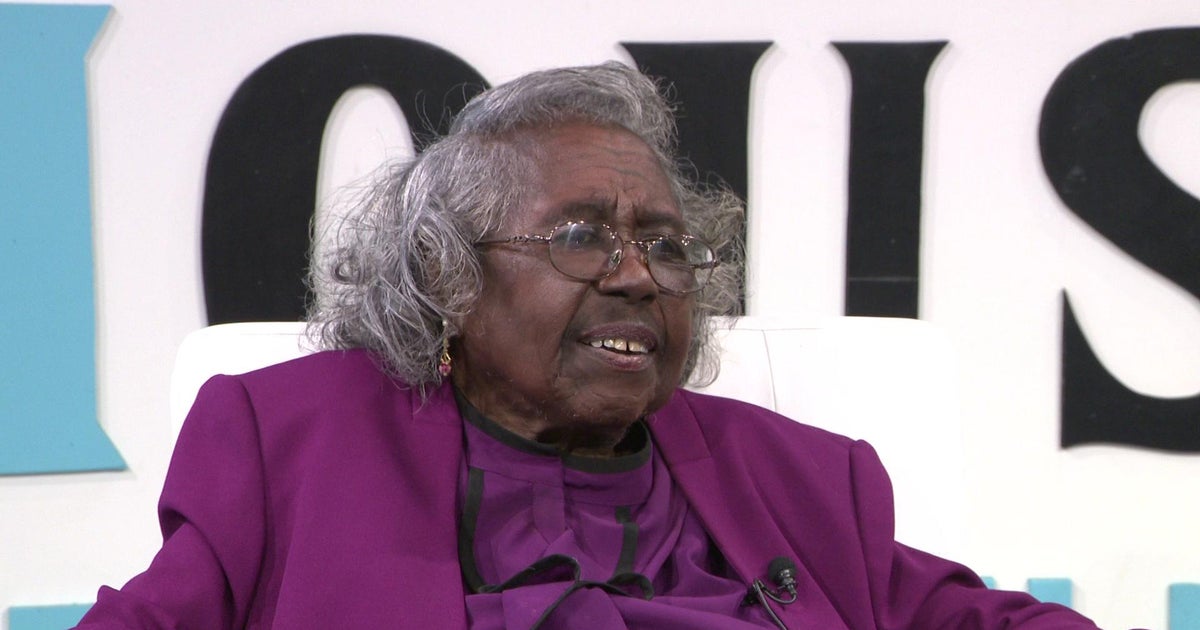Closed Miami-Dade Jail Used As Sick Ward During COVID Surge
MIAMI (CBSMiami/AP) - In early 2020, when COVID-19 ran rampant within South Florida jails, Miami-Dade Corrections and Rehabilitation wanted to evaluate how to curb the virus' spread.
One option — reopening the Miami-Dade Training and Treatment Center, a jail shuttered since 2016 — was quickly shot down by officials monitoring the county's jail system for the federal government due to the facility's inability to "meet the minimal constitutional standards for inmate confinement," according to a memo from then-Mayor Carlos A. Gimenez.
But in January, as the omicron variant ripped through Miami, the county turned the jail into a COVID ward, sending at least 70 people into the facility to try and isolate contagious detainees.
Miami-Dade Corrections says the decision was only temporary, and that the jail commonly known as the Stockade is once again empty now that omicron is fading.
Inmates sent into the facility, however, described filthy conditions. And the decision to reopen the jail — and the possibility that it might once again be used to house detainees — has caused alarm among some criminal justice activists.
"To be in this situation (two years) later where the jail population is higher than it was pre-COVID and has resulted in the opening of a jail that has been decommissioned for five years, I just think it's a signal that we're moving in the wrong direction," Maya Ragsdale, an attorney and executive director of Beyond the Bars Miami, told the Miami Herald last month.
Juan Diasgranados, a spokesman for Miami-Dade Corrections, told the Herald in an email that detainees at the jail were "equipped with ventilation, access to open air and physical exercise, and positive leisure-time activities, such as knowledge-based games and books."
He said the jail "also provides all inmates with meals, bedding, healthcare and hot water access to ensure proper health and hydration," and added that Corrections "has also implemented enhanced cleaning and sanitation processes at the Training and Treatment Center."
But last month, five people who were detained at the Stockade told the Herald they were served inedible food and subjected to frigid temperatures and ice cold showers. Other allegations, ranging from cracked, leaking ceilings to general uncleanliness, mirrored the findings of a 2011 Department of Justice investigation that contributed to the ongoing federal oversight of the county's detention system.
"The showers got mold. The walls got mold. The A.C. vent got mold," said a 21-year-old detainee who asked the Herald to protect his identity out of fear of retaliation. "Half of us don't even have blankets and they got the A.C. blasting. It's freezing cold in here."
Gimenez's 2020 memo referenced that significant, "cost prohibited" repairs were "necessary before the facility can be used to house inmates even temporarily." Diasgranados told the Herald that a wing of the jail that featured an upgraded boiler as well as new air conditioning units, televisions and other appliances was always available for emergency purposes.
A spokesperson for Miami-Dade Mayor Daniella Levine Cava, who succeeded Gimenez in late 2020, didn't initially respond to a request for comment. After this article first published online, the mayor sent the Miami Herald a statement expressing her commitment to corrections reform while explaining that the recent, unprecedented surge of COVID-19 led them to reopen the Stockade.
"The last surge of COVID-19 due to Omicron was unlike any other we have seen since the pandemic started and it forced us to make use of every resource we had available to ensure those detained in our facilities were safe and could quarantine properly," Levine Cava said. "We take these concerns very seriously and will review the conditions under which this group of individuals were temporarily held at the overflow facility."
Levine Cava added that the Internal Services Department responded Monday to the Stockade to "ensure standards are met" and "address any deficiencies we find immediately."
The Department of Justice did not respond to an email sent to their public affairs office.
WHAT IS THE STOCKADE?
Situated on the outskirts of Miami International Airport right next to Turner Guilford Knight Correctional Center, the Stockade opened in 1953 and boasted the ability to sleep roughly 1,200 men. By 1984, thanks to an expansion that introduced a dormitory-like setting, the National Institute of Corrections deemed the Stockade a "model correctional facility" for its increased bed space and relatively low costs compared to a more traditional jail.
Time eventually began to take a toll on the jail. Once praised for its sprawling design, the Stockade was closed five years after the DOJ in 2011 uncovered "a pattern and practice of constitutional violations in the correctional facilities" within Miami-Dade. The Stockade was specifically singled out for its rodent infestation, antiquated design that made cleaning difficult and dorm layout, which investigators said bred prisoner violence due to correctional officers patrolling the hallways outside the dorm.
"I was expecting everything to be changed from all the stories I heard a long time ago but obviously the system is still the same," Kwame Davis, a 23-year-old who was housed at the Stockade, said. In addition to being unable to eat the meat served to inmates without vomiting, Davis added that he didn't "feel safe" due to the lack of supervision.
"It makes me feel," Davis said, that "no one cares about us."
Diasgranados told the Herald the facility's usage was temporary. Yet, for Ragsdale, it's impossible to ignore what she views as a total policy pivot from July 2020. At the time, an increase in diversionary programs like home detentions — albeit in another effort to halt COVID-19's spread — had led the county's overall jailed population to drop to a little over 3,100. As of Feb. 6, the population sat just below 4,400.
(© Copyright 2022 CBS Broadcasting Inc. All Rights Reserved. The Associated Press contributed to this report.)



